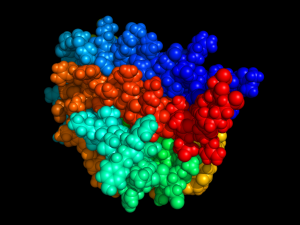FSH, or follicle stimulating hormone, is one of the most important hormones in a woman’s reproductive health. FSH is a naturally occurring hormone released by the pituitary gland, and as the name implies, it stimulates the follicles in the ovaries to produce a mature egg for fertilization. That’s the function of FSH from a physiological standpoint. From the reproductive medicine viewpoint, FSH has been the main diagnostic tool for many decades in assessing how well ovaries are still functioning in a woman.

In both men and women, having a balanced level of hormones is essential to proper fertility. If the FSH levels are either low or high, it is a clear indicator that something is out of balance within the reproductive system and may be causing issues with the couple being able to conceive. While FSH levels are used to determine if there is an imbalance, low or high FSH is not the direct cause of fertility issues, just a sign that there may be one.
In other words, FSH is not the disease. It is the symptom, a reflection of what the ovary does.
High FSH in Women
The role of FSH in women is to control and regulate the woman’s menstrual cycle and is also partially responsible for the production of ova, or eggs, in the ovaries. It is normal for a woman’s FSH levels to vary throughout her usual monthly cycle, with there being a spike in the levels immediately before ovulation.
It can be thought of metaphorically as the gas pedal which causes the ovaries to ovulate each month. As women age, it becomes more difficult for the ovaries to ovulate as the supply of eggs gets reduced and so the level of FSH rises (in order to push down the gas pedal further) over time. When a woman enters menopause, her ovaries are depleted and the gas pedal stays depressed permanently; that is to say the FSH level remains high. It is also possible for young women to have prematurely high FSH.
It’s important to note that although FSH levels that are overly elevated does indeed negatively impact conception, it is also the case that too little FSH can hamper conception. Hypothalamic anovulation (or lack of ovulation due to a malfunction of the hypothalamus gland) is a result of too little or no FSH production.
High FSH and Conception Problems
Although there are exceptions, generally speaking, the lower the FSH, the better for fertility. Most doctors like to see numbers below 15 mIU/ml. Most doctors believe a level higher than 15mIU/ml may indicate diminished fertility or diminished ovarian reserve (DOR).
FSH levels that are high, particularly on more than one occasion, means that the pituitary gland is trying to overcome, to compensate for an absence of responsive follicles in the ovaries, which is just what happens naturally at menopause. Overly abundant FSH is one of the hallmarks of primary or premature ovarian failure, sometimes referred to as early menopause.
What this means is that it is difficult for a woman with an overly high FSH to conceive, as it indicates that there are problems with her ovaries that needs to be resolved.
Again, FSH is not the diseases, it’s an indicator. If there’s an imbalance in the FSH, it is the health and current state of the endocrine system that needs to be examined.
Can FSH be Lowered?
If you’re diagnosed with high FSH, you’re likely wondering whether or not your FSH level can be lowered. Not to paint a bleak picture here, but it is generally suggested by physicians that the answer to this question is no, high FSH levels cannot be lowered.
One thing that’s gotten a lot of attention recently is that FSH levels may be artificially suppressed by estrogen therapy (such as with birth control pills). The idea is that by lowering FSH levels with estrogen, the ovaries will be tricked into responding when large doses of FSH are later given by fertility injections. However, no research has supported this idea so far.
One thing to keep in mind though, high FSH does not preclude pregnancy. It indicates that a woman is likely to respond poorly to fertility treatments. It does not necessarily mean that there aren’t any high quality eggs remaining and that pregnancy is impossible.



 Saving...
Saving...